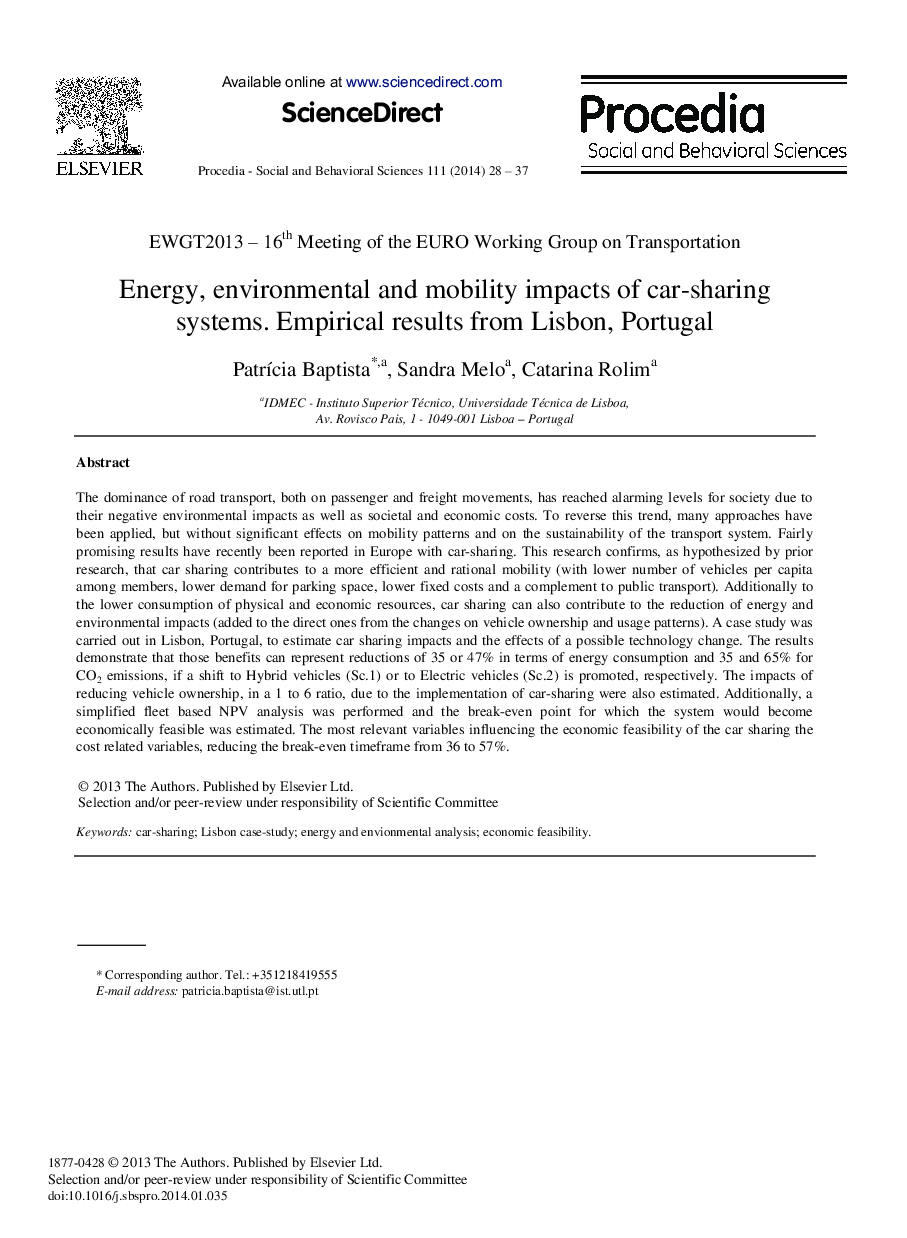| Article ID | Journal | Published Year | Pages | File Type |
|---|---|---|---|---|
| 1115888 | Procedia - Social and Behavioral Sciences | 2014 | 10 Pages |
The dominance of road transport, both on passenger and freight movements, has reached alarming levels for society due to their negative environmental impacts as well as societal and economic costs. To reverse this trend, many approaches have been applied, but without significant effects on mobility patterns and on the sustainability of the transport system. Fairly promising results have recently been reported in Europe with car-sharing. This research confirms, as hypothesized by prior research, that car sharing contributes to a more efficient and rational mobility (with lower number of vehicles per capita among members, lower demand for parking space, lower fixed costs and a complement to public transport). Additionally to the lower consumption of physical and economic resources, car sharing can also contribute to the reduction of energy and environmental impacts (added to the direct ones from the changes on vehicle ownership and usage patterns). A case study was carried out in Lisbon, Portugal, to estimate car sharing impacts and the effects of a possible technology change. The results demonstrate that those benefits can represent reductions of 35 or 47% in terms of energy consumption and 35 and 65% for CO2 emissions, if a shift to Hybrid vehicles (Sc.1) or to Electric vehicles (Sc.2) is promoted, respectively. The impacts of reducing vehicle ownership, in a 1 to 6 ratio, due to the implementation of car-sharing were also estimated. Additionally, a simplified fleet based NPV analysis was performed and the break-even point for which the system would become economically feasible was estimated. The most relevant variables influencing the economic feasibility of the car sharing the cost related variables, reducing the break-even timeframe from 36 to 57%.
